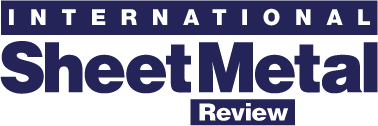
The connected world
Submitted by:
Sara Waddington
Alberto Martínez, Bystronic’s chief digital officer, explains why and how the sheet metal industry needs to address digitalisation. Reliable data is crucial on this journey.
“Digitalisation is not just for large companies. Small and medium-sized enterprises must also embrace this essential change.”
======
Bystronic is a leading technology company in sheet-metal processing. Its focus is on automation of the complete material and data flow of the cutting and bending process chain. It believes that the intelligent connectivity of laser-cutting systems and press brakes with innovative automation, software and service solutions is the key to comprehensive digitalisation in the sheet-metal industry.
Software and automation solutions are a key pillar of Bystronic's growth strategy. In his role as Bystronic’s chief digital officer, Alberto Martínez has successfully led the Competence Centre Software Services since September 2018. He has been instrumental in driving forward the development of its product portfolio for smart factory solutions, and the Smart Factory Software Suite.
In this interview, he discusses why and how the sheet metal industry needs to address digitalisation. The industrial sector, especially small and medium-sized companies, need accessible solutions to help transform themselves into smart factories, regardless of their size.
ISMR: Why is it necessary to digitise the sheet metal industry?
AM: The world is constantly changing and companies in the sheet-metal industry are also immersed in this uncertain and complex environment, where supply chains are affected by unexpected events.
In these environments, it is increasingly important to be able to adapt and become flexible, controlling uncertainty and risk as much as possible to ensure business feasibility. Digitalisation can help companies in this continuous adaptation process by supplying them with accurate information which they can analyse and then use to power data-driven decisions that can improve their performance.
We believe that digitisation should adapt to companies and not the other way around. We want our customers to overcome the fear of becoming clones. For us, digitalisation must be able to maintain the unique character of each company allowing them, in each case, to make the most of that competitive advantage. That is why we have an offer for every need, taking into account the digital maturity level of a company and its real needs.
It would be pointless to implement software to turn a company into a smart factory if it is neither prepared for this nor needs these tools. We want our customers to trust us to accompany them on their digitalisation journeys. It is essential that they perceive that we understand their needs and adapt our solutions to each case. This is the only way to achieve success in the digitisation process.
ISMR: What are the main barriers for sheet-metal companies, especially small and medium ones, to start the digitalisation process?
AM: Our experience has shown us that there are small and medium-sized companies in the sector looking, or who would like, to digitalise. But they feel that, because of their size and make-up, it is not within their reach. The reasons for this are varied.
In some cases, companies have already started a digitisation process in the past but failed because they could not find tools that met their specific needs or because they did not find someone who understood those needs and tried to fit them into a standard. They may also believe that these are processes with huge costs which require lots of resources.
Bystronic can respond in all cases. We have tools specifically developed for sheet metal, and our experienced software experts understand these needs and can advise customers. I like to say that we develop solutions from sheet metal for sheet metal.
To read the rest of this interview, see the October issue of ISMR on https://joom.ag/ODzd/p34
